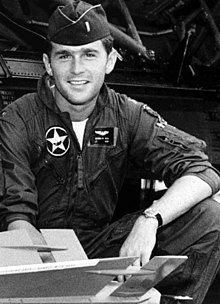This is an old revision of this page, as edited by 67.140.156.177 (talk) at 02:30, 9 July 2005. The present address (URL) is a permanent link to this revision, which may differ significantly from the current revision.
Revision as of 02:30, 9 July 2005 by 67.140.156.177 (talk)(diff) ← Previous revision | Latest revision (diff) | Newer revision → (diff)| The neutrality of this article is disputed. Relevant discussion may be found on the talk page. Please do not remove this message until conditions to do so are met. (Learn how and when to remove this message) |
years ago dubya did cocaine pooped in his face and farted and was accounted to use marijuana and after he was elected in 2001, he spend 78% of his time on vacation.
a Bachelor of Arts degree in history in 1968.
After graduating from Yale University, Bush enlisted in the Texas Air National Guard on May 27, 1968, during the Vietnam War, with a commitment to serve until May 26, 1974. He was promoted once, to first lieutenant, on the November 1970 recommendation of Texas Air National Guard commander Lt. Col. Jerry B. Killian. He served as an F-102 pilot until 1972.

In September 1973, he received permission to end his six-year commitment six months early in order to attend Harvard Business School. He transferred to inactive reserve status shortly before being honorably discharged on October 1, 1973. (PDF)
It has frequently been alleged that Bush skipped over a waiting list to receive a National Guard slot, that he did not report for required duty from 1972 to 1973, and that he was suspended from flying after he failed to in 1984 to Spectrum 7, another Texas oil and gas exploration firm. Under the terms of the sale, Spectrum 7 made Bush its chief executive officer. Spectrum 7 lost money, and in 1986 it was merged into Harken Energy Corporation, with Bush becoming a director of Harken.
After working on his father's successful 1988 presidential campaign, he was told by a friend, William DeWitt, Jr., that another family friend, Eddie Chiles, wanted to sell the Texas Rangers, his Arlington-based ] did not seek re-election.
- Related articles: 2004 U.S. election voting controversies; [[2004 U.S. Election controversies and irregularities. In 2005 he was succeeded by Condoleezza Rice, who became the first African-American woman to hold the post.
the benefit calculation formula that would produce lower Social Security benefits for anyone retiring more than a few years in the future, except for the lowest-income workers. Many Democrats and some Republicans have opposed changes that they view as turning Social Security into a welfare program that would be politically vulnerable. See Social Security debate (United States).
====which has, since 1997, opposed emissions limits by claiming that there was too much uncertainty in climate science.
On January 14, 2004, Bush announced the Vision for Space Exploration, calling for a return to the Moon by 2020,|- | || Condoleezza Rice || 2005— |- |Defense || Donald H. Rumsfeld || 2001— |- |Treasury || Paul H. O'Neill || 2001–2003 |- | || John W. Snow || 2003— |- |[[Attorney General of the United States|Richard Cheney served as Secretary of Defense under George H. W. Bush.
Other advisors and officials
- United States Director of National Intelligence - John Negroponte (2005)
- CIA Director - George Tenet (2001–2004), John E. McLaughlin (interim director, 2004), Porter J. Goss (2004—)
- FBI Director - Robert Mueller
- [[United States National Security *2002 January 8: No Child Left Behind Act
- 2002 March 9: Job Creation and Worker Assistance Act of 2002
- 2002 March 27: Bipartisan Campaign Reform Act of 2002
- 2002 May 13: Farm Security and Rural Investment Act of 2002
- 2002 July 30: A .com/fact/content/?040119fa_fact2 "Fortress Bush: How the White House Keeps the Press Under Control"], The New Yorker, LXXIX, 53
- James Bovard, The Bush Betrayal, (election, 2000|2000]] (won), [[U.S. presidential election,